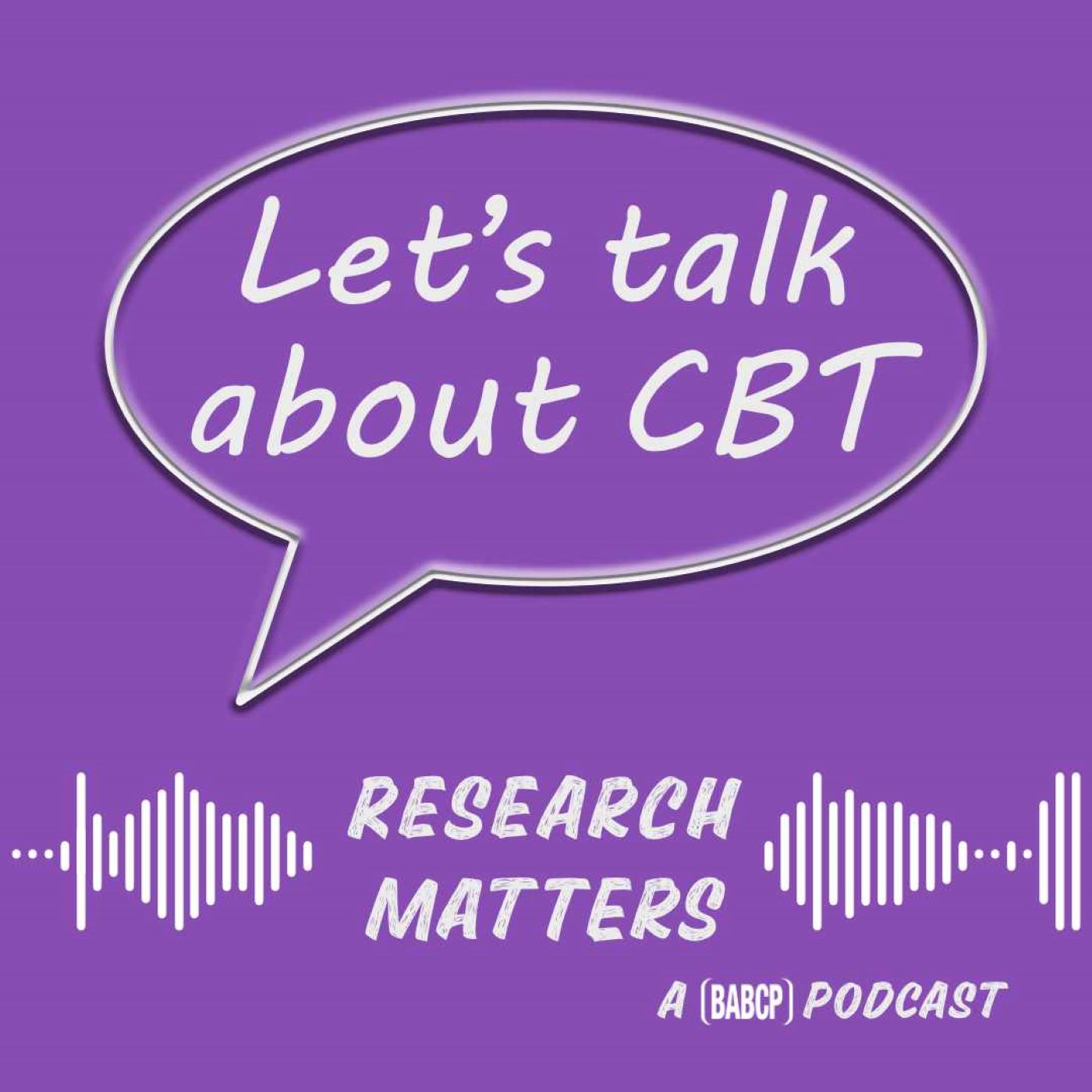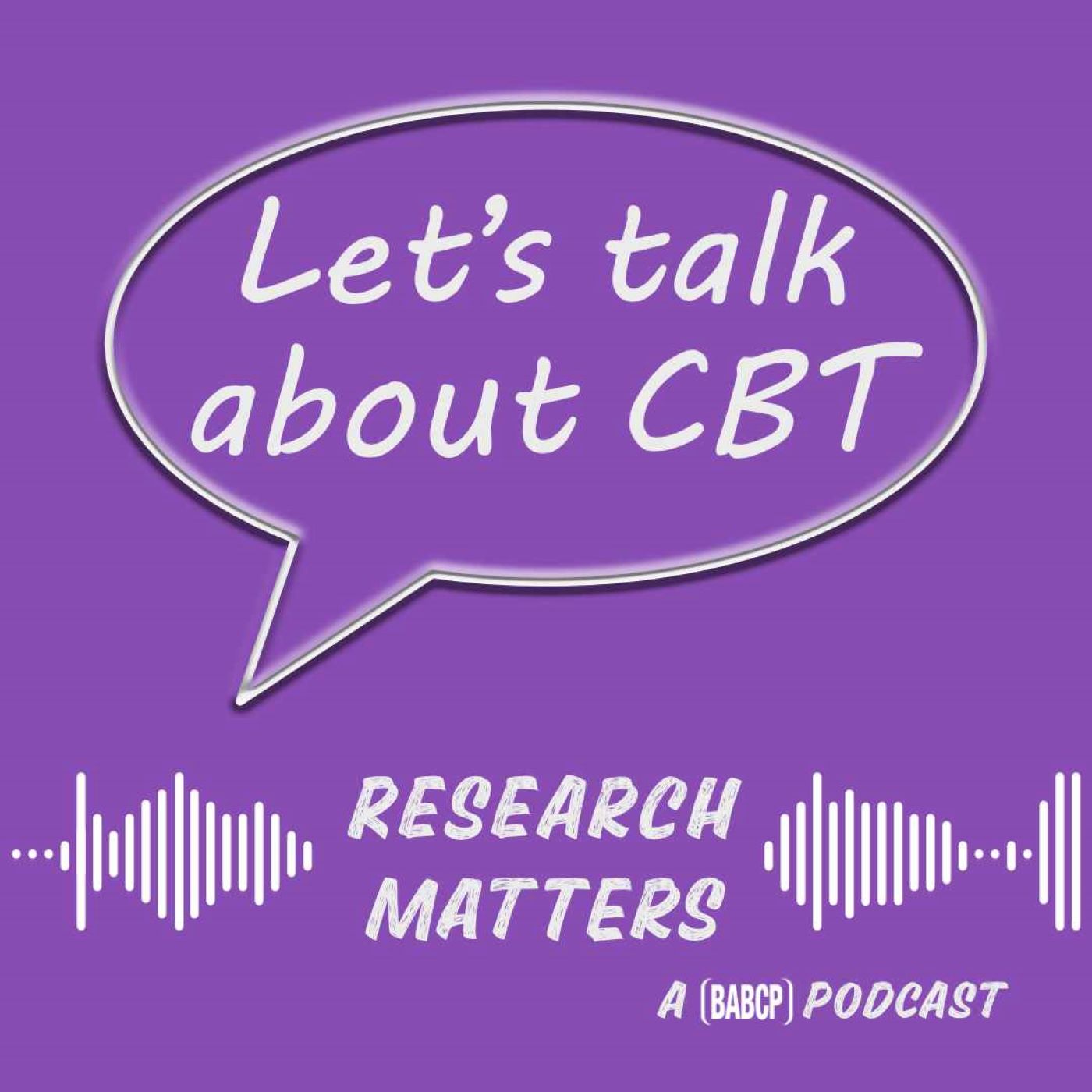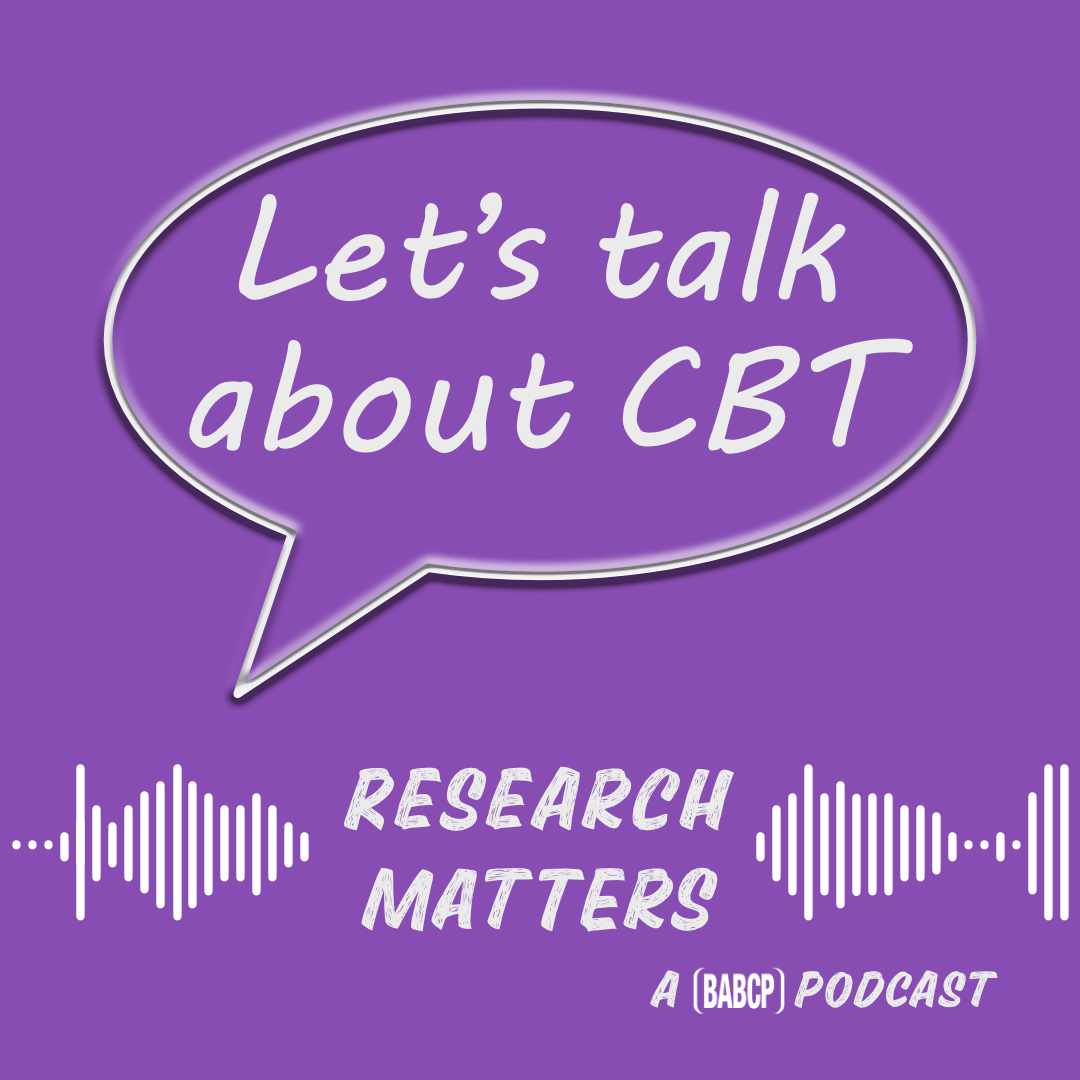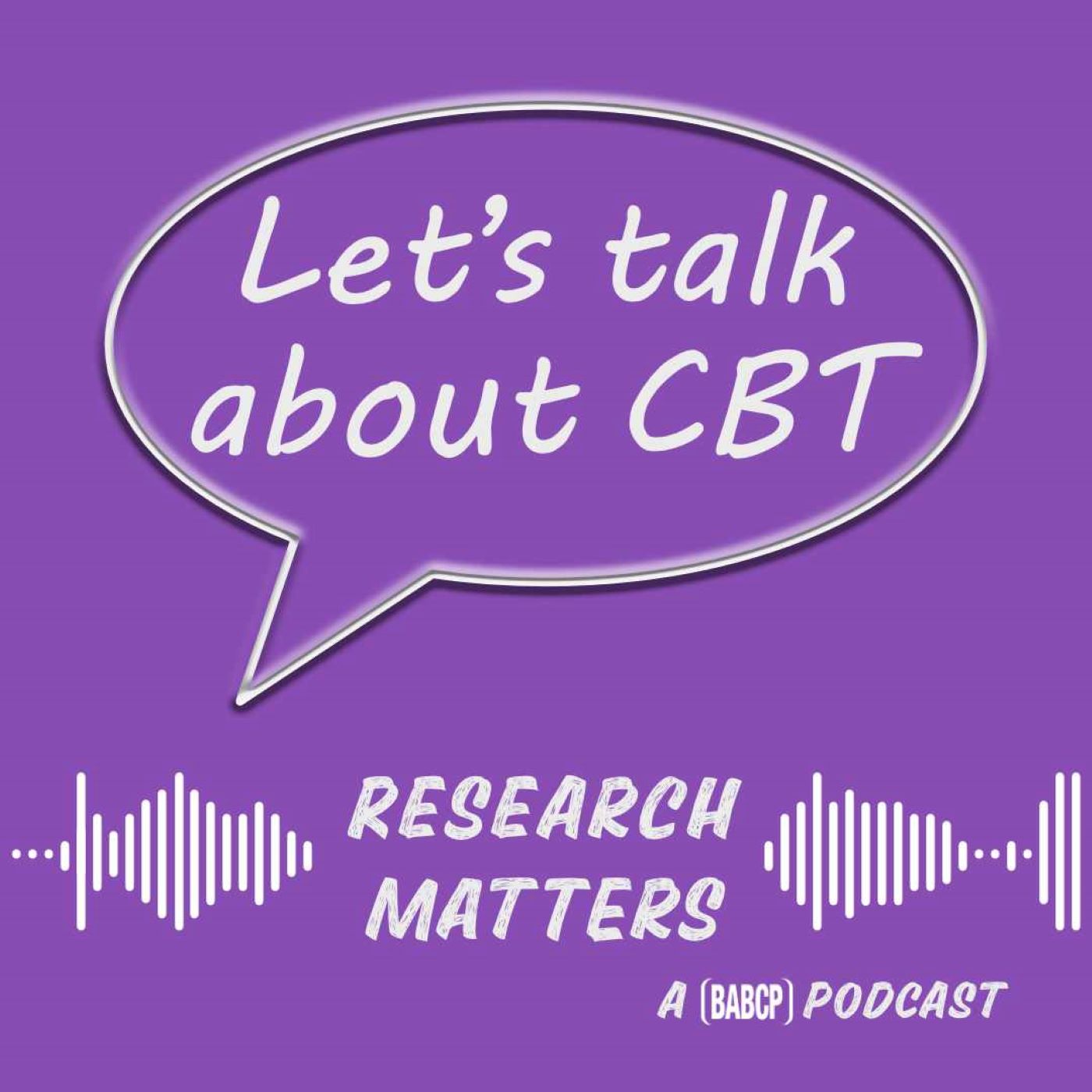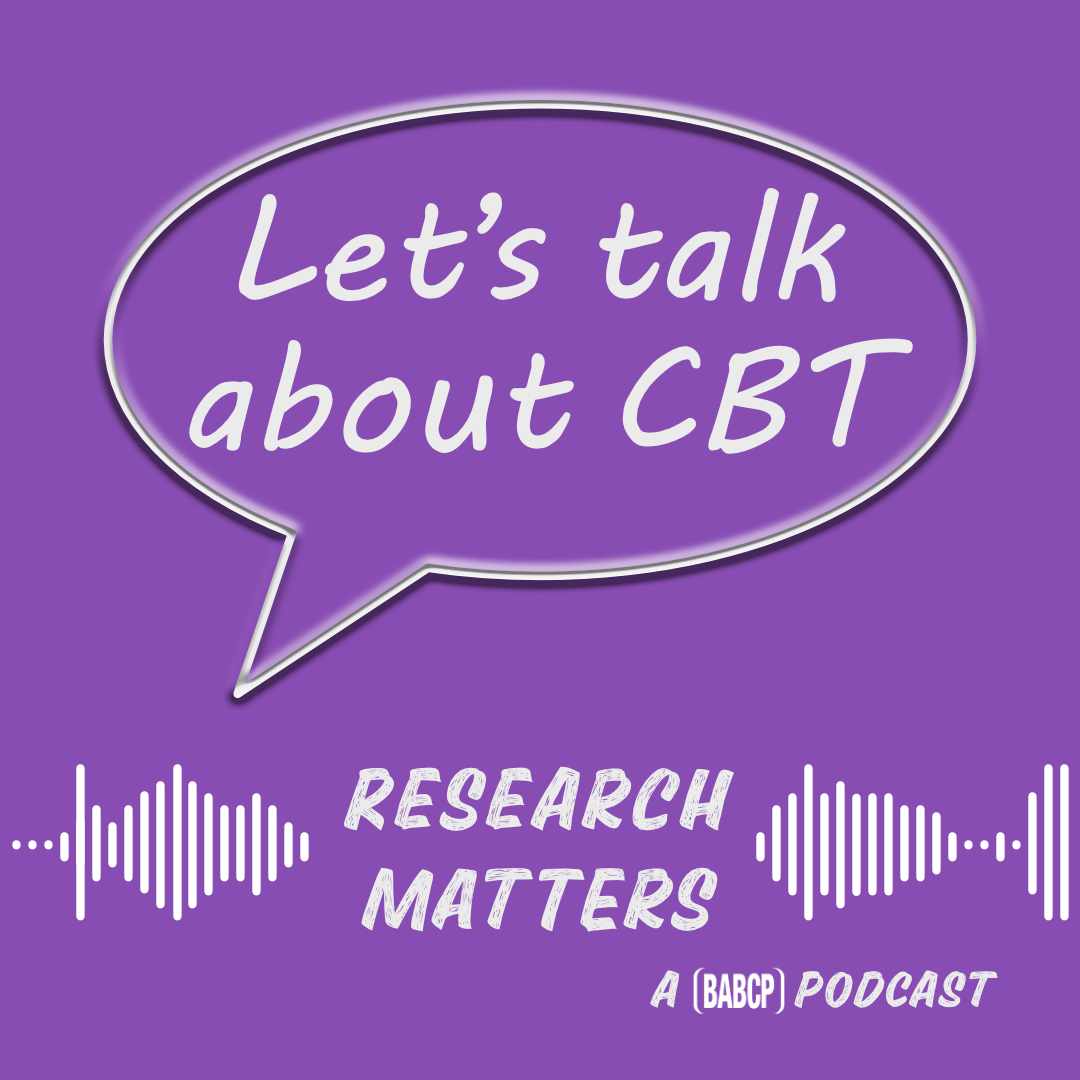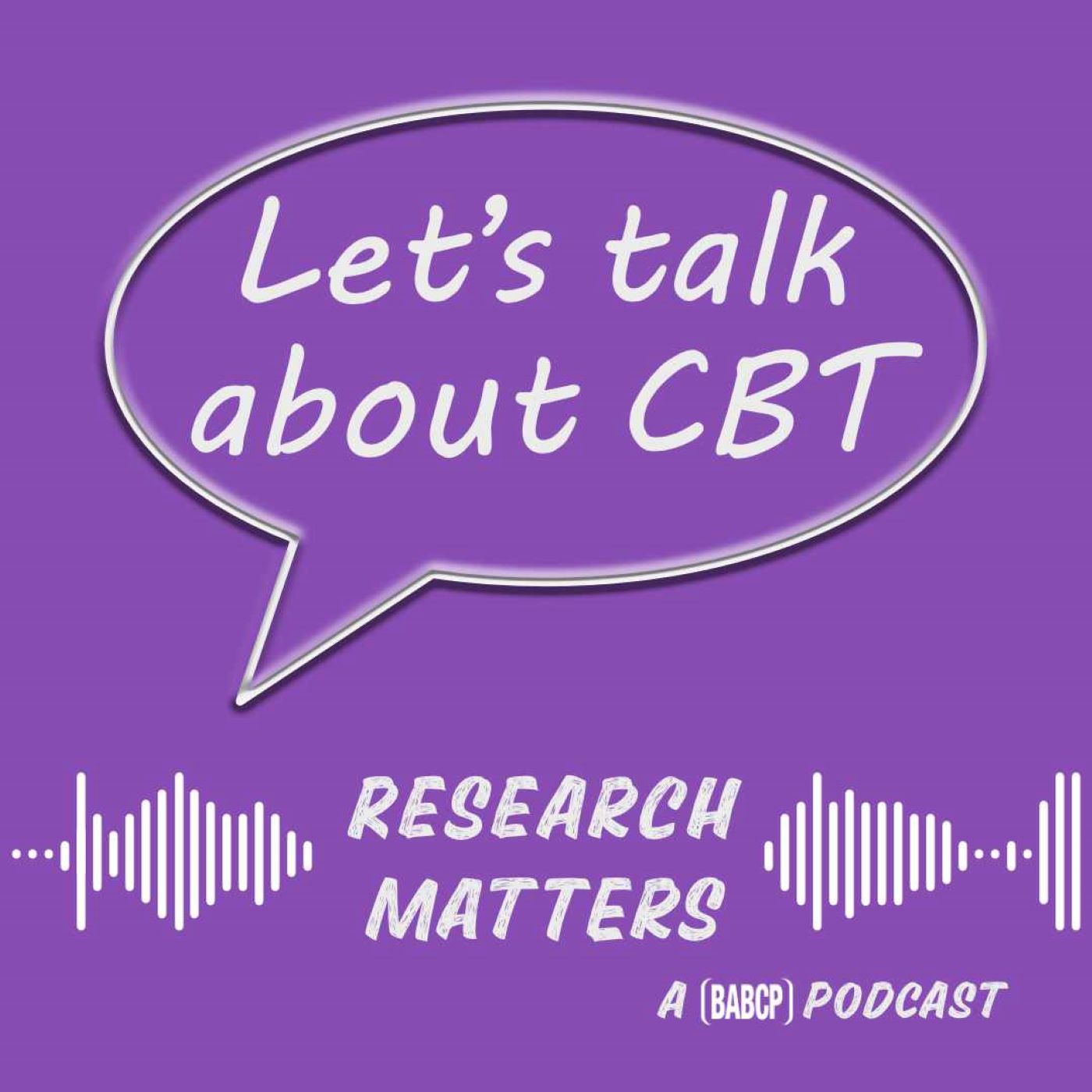Ten misconceptions about trauma-focused CBT for PTSD with Dr Nick Grey
Description
In this episode of Let's Talk about CBT – Research Matters, host Steph Curnow speaks with Dr. Nick Grey, a consultant clinical psychologist with extensive experience in anxiety disorders and PTSD. Together, they discuss the paper "Ten Misconceptions about Trauma-Focused CBT for PTSD," co-authored by Nick and published in the Cognitive Behaviour Therapist.
The paper addresses common myths and challenges in trauma-focused CBT, offering insights for both therapists and researchers in the field.
Key misconceptions discussed include:
- Misconception 1: "Trauma-focused treatments are not suitable for complex or multiple trauma."
- Misconception 2: "Stabilisation is always needed before memory work."
- Misconception 10: "Cognitive Therapy for PTSD is rigid and inflexible."
If you enjoyed this episode, please rate, review, and subscribe wherever you get your podcasts. Follow us on Twitter at @BABCPpodcasts or on Instagram . Share your feedback or episode suggestions by emailing podcasts@babcp.com.
Useful links:
The paper discussed is:
Murray, H., Grey, N., Warnock-Parkes, E., Kerr, A., Wild, J., Clark, D. M., & Ehlers, A. (2022). Ten misconceptions about trauma-focused CBT for PTSD. The Cognitive Behaviour Therapist, 15, e33. doi:10.1017/S1754470X22000307
The full version of the article can be found freely available here: https://bit.ly/47KIwPL
Transcript:
Steph: Hello and welcome to Let's Talk about CBT- Research Matters, the podcast that explores some of the latest research published in the BABCP journals with me Steph Curnow. Each episode, I'll be talking to a recently published author about their research, what was the motivation behind it and how they hope it will impact the world of CBT.
Today I am talking to Dr Nick Grey. Nick is a consultant clinical psychologist and has worked in the field of anxiety disorders and PTSD for many years. He is also one of the authors of the paper we are going to be talking about today which is titled "Ten misconceptions about trauma-focused CBT for PTSD" and is published in the Cognitive Behaviour Therapist.
So Nick, welcome to the podcast.
Nick: Thank you, Steph. It's nice to be here.
Steph: It's great to have you. So before we get talking about the paper, I was wondering if you would just mind telling everyone a bit about who you are and the areas in which you work.
Nick: Yeah, sure. So, I'm a clinical psychologist by professional background and a sort of a CBT therapist by sort of flavour of psychological therapy. And I work down in Sussex now, based in Brighton working across Sussex partnership and for many years I worked up in London at the Centre for Anxiety Disorders and Trauma and continue to work together with David Clark, Anke Ehlers and other members of the Wellcome Trust anxiety disorders team who are based in Oxford. And, and that's where a lot of the work that we're going to be talking about has originated in both London and Oxford and in particular the paper is pulled together by the Oxford team.
What I should also say and just wanted to say up front is that the paper is lead authored by Hannah Murray, who sadly passed away after a long illness in December 2023 and her input, not just to this paper, but to us as a group has been unbelievably crucial and, both us as a team, but I know that the wider, sort of CBT community will really miss her. Miss her contribution.
Steph: Absolutely. And thank you for mentioning Hannah. She was a great friend to the journals as well. She spent so much time contributing to both of our journals, mentoring people, reviewing for us. Yeah, we really miss her.
So I really wanted to talk to you about this paper today, because not only is it one of our most widely read papers, which is brilliant, but the format of this paper was so popular, it's actually sparked a whole new series of papers for us. We're doing a whole new set of "10 Misconceptions" papers now that we're currently commissioning. I just wanted to ask how did this come about? What was the idea for this?
Nick: The idea came around because we found ourselves, doing a lot of training, a lot of supervision over a number of years, particularly for the treatment that we provide Cognitive Therapy for PTSD, which is one of the types of trauma focused kind of CBT. And we found ourselves saying many of the same things again and again, really sensible questions that people would raise in training workshops, really sensible questions people would raise in supervision, and we thought it would be helpful for us and therefore for all the people that we are also sort of like supervising and training to have us almost perhaps a single resource. So like an FAQs, around some of the things in this line of work.
Steph: Before we get into talking about the misconceptions themselves, you've worked in PTSD and trauma for a long time now. If you don't mind me asking, when you started out were there any myths or misconceptions that you held about working with clients with PTSD?
Nick: Yes, all of the ones that are in the paper at some stage or other, I think this is a normal process that actually we hold all of these to one degree or other, until perhaps we've had the chance to test them out or we've had the chance to learn more.
One of the key things for me, I think one of the key things that we're always trying to get across in the work that we do is there's a difference between having a history of traumatic events and having experienced traumatic events, and then the types of presenting problems that people may have, which will include, may include PTSD, but may not only be PTSD. And this really came through to me, the sort of where I started in, in sort of psychology and mental health in the NHS was a long time ago, working as a research assistant, actually at the Spinal Injury Centre at Stoke Mandeville Hospital and part of the project that I was working on, led and supervised by Paul Kennedy, a clinical psychologist, was around how do people cope following spinal cord injury. And my job involved speaking to lots and lots of people who had experienced a spinal cord injury and how they were coping and, how, what helped them, what was difficult and those kind of things. And one of the things that I was really struck by was just how varied their current presenting difficulties or lack of difficulties were, given many of the similarities in the experiences that they'd had which had resulted in life changing injuries for all of them, essentially. And a small proportion of those people who had a spinal cord injury also were having repeated unwanted memories, nightmares, waking in the night on the wards, reliving the experiences that had led to their injury. But it was only a kind of a proportion. And then there was differences in how they coped with, with those experiences as well.
So one of the things that I really took from that is that firstly that not everybody who experiences a traumatic event is going to be negatively affected in the long term, that the types of impact and effects that people may have following a traumatic event may be very varied or be very personal to them and even for those people who are having like unwanted memories or nightmares, for many people those also reduce naturally over time. And then what we're working with, certainly thinking about cognitive therapy for PTSD, thinking about trauma focused therapies as a whole, we're working with people who have become stuck in that process of natural recovery.
So, I think one of the first misconceptions for me in this area was that everybody who goes through a trauma is going to be affected and they're going to be negatively affected and they're going to have PTSD. And I think some of that, that sort of misconception that I certainly, I think, held before getting more experience, is still to some degree commonly held in health systems. I wouldn't say necessarily by CBT therapists or people working in mental health, but as a whole, if you've had a trauma, it's definitely going to affect you and you're definitely going to need a trauma focused therapy. And I think this is one of the things that certainly exercises me in the present day as well, when people talk about things like treating complex trauma. And this ties in a little bit with the first misconception in the paper about multiple traumatic events or prolonged traumatic events and the complexity of kind of memory presentations and for me complex trauma is a description of the history, is a description of what the person has experienced and it's not a descript


